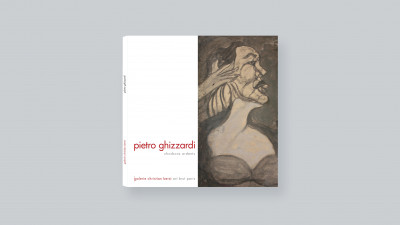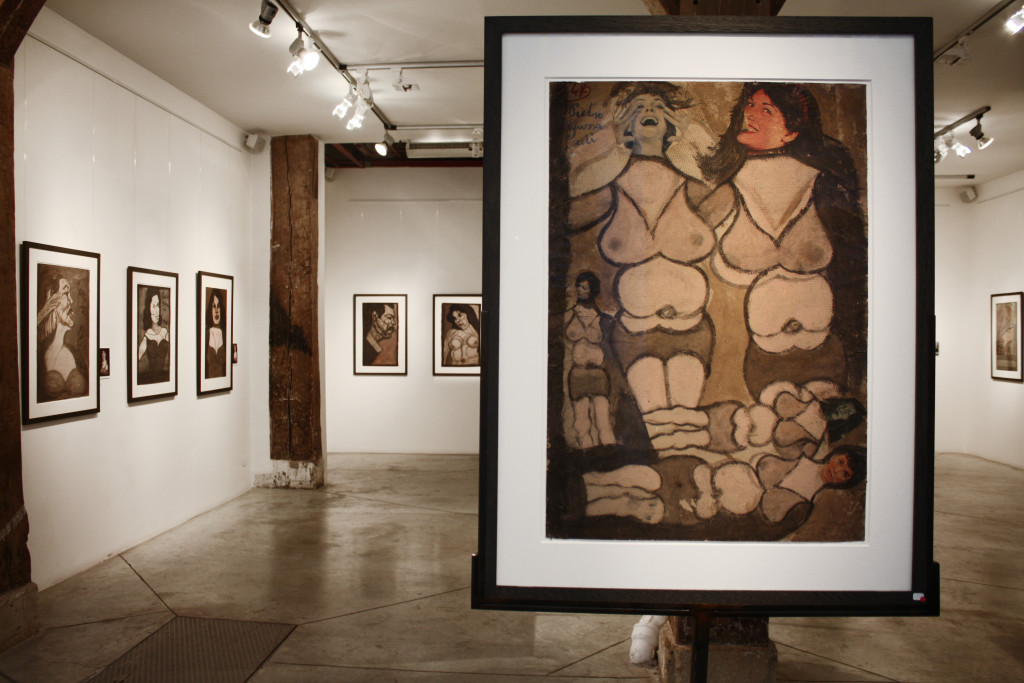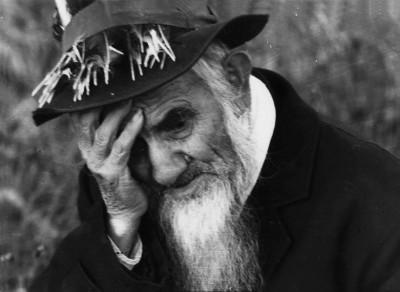pietro ghizzardi
glowing coals
When Pietro Ghizzardi was born to a farming family from Mantua in 1906, there was absolutely nothing to suggest he would one day become of Italy’s most emblematic representatives of Art Brut. In fact, like Séraphine in France, he was inaccurately classed as a naïve artist for many years.
His early years were spent working in the fields; his father died young, and Pietro grew up with a domineering mother and a brother who poured scorn on his creative urges. In 1950, he found himself living alone with his mother. Having no land to farm, he was forced to earn a meagre living for himself and his mother by doing odd jobs.
Yet as he slid down the social scale, his art scaled new heights. He used scraps of cardboard, soot from the fireplace, and pigments he made himself from plants and minerals, to create a popular pantheon of faces, almost exclusively female, some cut from the pages of magazines. He tore out glossy paper film stars and princesses and reincarnated them as mother-goddesses, opulent Venus figures, celebrating a fetishized, melancholy version of femininity.
Their shimmering flesh is shot through with sooty streaks, their bodies arched and twisted, their gazes feverish, their smiles verging on the carnivorous. Such sovereign erotism seems to be Ghizzardi’s way of seeking out an original, timeless feminine ideal – a transgressive essence of womanhood.
Pietro Ghizzardi had a deep-rooted love of the land and of traditional rural values. He drew, painted, sculpted, sang, played the harmonica, and told stories. The uniquely expressive figures he depicts are steeped in the age-old traditions that Pietro clung to in an age dominated by the need to maximise productivity and the use of time. Pietro was born in 1906 to a family of farmers living in the Mantua region of northern Italy. As day labourers, his parents were constantly on the move, and his childhood was one of deprivation. He was also a sickly child and, as a result, his schooling was patchy. The Ghizzardi family only put down roots in 1931, when they settled in Boretto. The River Po[…]

Preface : Dino Menozzi
Foreword : Christian Berst
Catalog published to mark the exhibition Pietro Ghizzardi : charbons ardents, from october 14th to november 19th, 2011.

